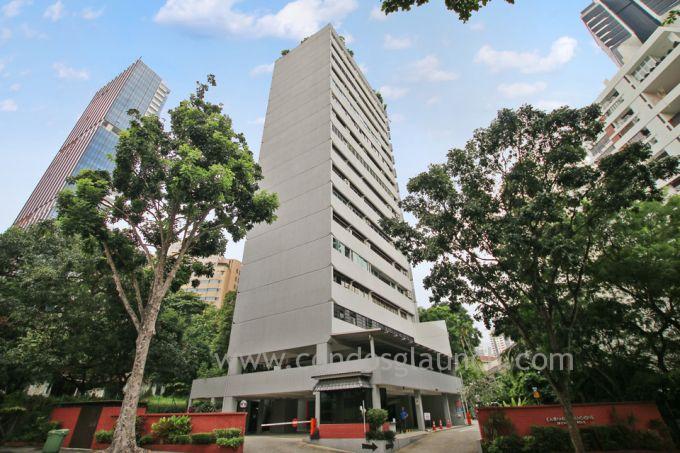PUBLISHED TUE, FEB 20, 2018
THE effect of the 1-percentage point climb in the best minimal buyer’s stamp obligation (BSD) rate on the bit of a private property’s estimation surpassing S$1million will be felt most for first-class buys.
JLL senior concultants Karamjit Singh stated: “These incorporate costly condo units, bungalows and what is going on more wildly these days – land and enbloc property buys by developers.”
Property experts for the most part said that as the heft of private property bargains are underneath S$1.5 million, the change to the BSD is relied upon to have just a mellow effect on property demand.
PwC Singapore’s real estate and hospitality tax leader Teo Wee Hwee stated: “This isn’t a property cooling measure; it’s a measure to gather more income, and in accordance with having a more dynamic tax system.”
For a S$1.5 million property, the BSD goes up from S$39,600 to S$44,600 – mirroring an expansion of just S$5,000 or 0.33 for every percent of the property cost.
A prepared industry watcher stated: “Purchasers strolling into a showflat may utilize this is as a dealing point to request that the developer assimilate the higher BSD.
“In a rising property market, developers could stand firm on this, however for PR reasons, they may consent to retain in any event part of the higher BSD; this should enable keep to individuals upbeat and the purchasing momentum going.”
As the estimation of a property increases, so does the effect of the BSD climb.
On account of a S$2 million property, the BSD climb works out to 0.5 percent of the price tag; for a S$25 million property, the BSD increment would be 0.96 percent of the property price.
For a developer purchasing a S$200 million private site, its BSD ascends from S$5.99 million to S$7.98 million. The S$1.99 million increment means almost 1 for each percent of the property cost.
Under a drive to make Singapore’s assessment framework more dynamic, Finance Minister Heng Swee Keat announced on Monday that the best peripheral BSD rate would be raised from 3 percent to 4 percent and connected to the estimation of private property surpassing S$1 million. The change applies to every single private property purchased on or after Feb 20, 2018.
The extra transport obligation (ACD) rates – presented in March a year ago on share moves in elements principally holding private properties – will likewise be balanced in like manner.
Mr Heng noticed that the BSD rates for private properties going from 1 to 3 percent had stayed unaltered since 1996.
There is no adjustment in the 1 to 3 percent BSD rate for non-private properties.
With the change uncovered amid Monday’s Budget declaration , the first S$180,000 of the value of a residential property is taxed at 1 per cent; the next S$180,000 at 2 per cent; the following S$640,000 at 3 per cent and the portion of the value surpassing S$1 million, at 4 per cent.
Prior to this change, the rates were: 1 percent for the principal S$180,000, 2 percent for the following S$180,000 and 3 for percent for the sum surpassing S$360,000.
ERA Realty Network key executive officer Eugene Lim also said the current buying momentum in the private property market would not be adversely affected.
Ong Teck Hui, national director at JLL, noted that the increase in the absolute amount payable in the BSD for big-ticket items would be more significant – “and some buyers might calibrate the increase in their purchases”.
His colleague Mr Singh said: “For government land tenders of residential sites, developers will price in the 1 per cent hike in the BSD, and so theoretically, this will mean a 1 per cent drop in land values, everything else being equal.”
For collective sales of residential sites, Mr Singh paints two scenarios:
“Suppose that, in this way a purchaser tags along – amid the 10-week time span after the tender has closed, amid which a private treaty deal is permitted under enbloc deal rules – and who is set up to pay the hold cost, as has happened as of late for Brookvale Park, Cairnhill Mansions and Pearl Bank Apartments – the developer will most likely need to take the higher BSD in its stride if the arrangement were to occur from Feb 20.”
The second situation exhibits an instance of a progressing delicate exercise that still can’t seem to close, a developer that was beforehand considering offering at S$220 million (opposite the S$200 million save cost) may trim its offer to S$218 million to mirror the 1 percent climb in the BSD, said Mr Singh, who is likewise CEO of Showsuite, another homes gateway.
Fleshing out the points of interest of the change, the Ministry of Finance reported a transitional arrangement for cases in which an Option to Purchase (OTP) has been allowed by venders to potential purchasers at the very latest Feb 19, 2018. For such cases, the previous BSD rates, rather than the modified BSD rates, will apply if the OTP is practiced inside three weeks of this declaration (that is, at the latest March 12) or the OTP legitimacy period, whichever is prior.
An extra purchaser’s stamp obligation or ABSD is likewise payable by Singaporeans on their second and resulting private property buys and by changeless inhabitants and inonnatives for any private property buy here. ABSD rates, going from 5 to 15 percent, rely upon citizenship status and property tally.









 WhatsApp us
WhatsApp us